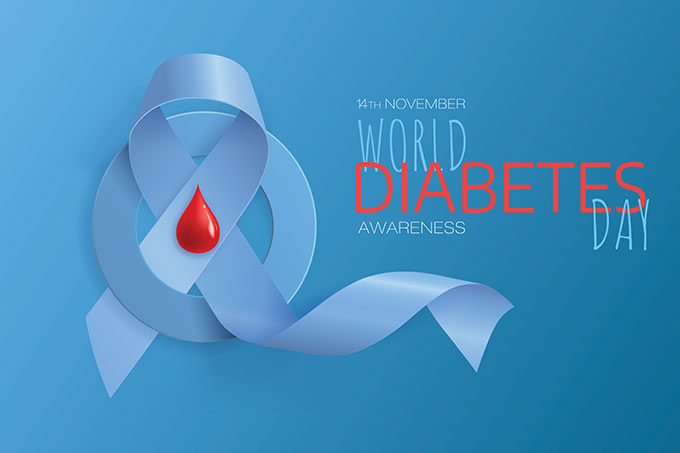Dr Hetashi Bawa and Dr Maeve Hinds, NHS Clinical Psychologists, discuss the importance of breaking the stigma for people with diabetes. They have both conducted psychological research focusing on the experiences of people with diabetes.
In the U.K., there are approximately 4.4 million people living with diabetes. November 14th is World Diabetes Day and this year, Diabetes UK is highlighting the impact of stigma upon the community.
As clinical psychologists, we recognise that stigma can affect one’s emotional wellbeing, and for those with a health condition, stigma may also impact upon their health management and physical wellbeing. For this reason, we wanted to shed light on ways that you can recognise and challenge negative stereotypes and prejudice.
Whilst the health condition diabetes may be commonly known amongst the general population, the different types of diabetes and the reasons why diabetes might develop may be less understood. There are many myths that exist about diabetes, including that it’s caused by unhealthy choices. However, genetics, stress and environment are just some of the factors involved in the onset of diabetes. It is a complex health condition that requires daily management to stay well.
Have you ever received unprovoked comments or noticed people changing their behaviour around you? How did that make you feel? Whether administering medication or wearing a blood glucose monitor, people with diabetes have reported experiencing prejudice from strangers and their loved ones alike. These experiences can be isolating and change how comfortable people with diabetes feel about looking after themselves, such as checking their blood sugar levels or eating out in public.
We can all do our part to challenge stigma related to diabetes.
On an individual level, we can:
- Avoid falling into traps about misconceptions of diabetes. There are common and rare types of diabetes and there are a variety of reasons why a condition could develop.
As a community, we can:
- Show our support. Stigma, prejudice, and negative attitudes towards people with diabetes can lead to feelings of shame and embarrassment, show kindness and ask how you can be supportive if someone shares challenges they have faced.
- Keep learning. If you don’t understand something, websites like Diabetes UK have easy-read, informative resources. It isn’t up to people with diabetes to have to educate others, this can be exhausting and emotionally draining.
As psychologists, we can:
- Consider what emotional support is offered to people with diabetes and managing the effects of diabetes-related-stigma.
- Work alongside other healthcare professionals and support network to promote the importance of reducing stigma attached to people with diabetes.
As researchers, we can:
- Continue to research and publish accessible articles focusing on the stigma that people with diabetes experience with the aim to empower people with diabetes and promote awareness around the conditions.
We chose to use the term ‘people with diabetes’ to broadly consider the impact of stigma across diabetes conditions.
Find out more about the Salomons Institute for Applied Psychology.
 Expert comment
Expert comment Jeanette Earl
Jeanette Earl 1576
1576


